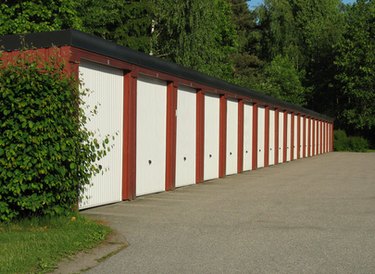
People pick interesting places to live. Some choose houses or apartments, lofts or rented rooms. Some people opt to live in a garage. While garages do provide shelter from the elements and a bit of privacy, there are risks associated with living in them.
Carbon Monoxide
Video of the Day
Carbon monoxide is a colorless, odorless gas, and combustion fumes create it. Automobiles, small engines, stoves and even gas lanterns can release carbon monoxide as a byproduct. According to the Centers for Disease Control, "People who are sleeping or intoxicated can die from CO poisoning before ever experiencing symptoms." If you live in a garage where someone parks his vehicle, you are putting yourself at risk. Using a small propane stove and lantern is also dangerous. If your garage is part of a multi-garage unit, the automobile fumes may drift into your stall without you even knowing it.
Video of the Day
Insulation, Heating and Cooling
Unless you live where it is a moderate temperature year round, you will either be too hot or too cold. Garages are not typically insulated, nor built with a heating or cooling system. The large garage door, unless fairly new, does little to block the heat or cold air. Your garage is likely drafty and damp.
Bugs, Rodents and Other Uninvited Guests
Garages are not the most secure living spaces, nor are they the most sanitary. Living in a garage likely means you share your home with biting bugs, spiders, mice and disease-carrying varmints. And, unless you've installed an industrial lock, garage doors are fairly easy to break into. You probably don't have an alarm system, so once your garage is broken into, you still must find a way to alert the authorities. Many garages are not wired for telephones, so unless you've got a cell phone, you cannot call for help.
Fire
Chances are, your garage is not wired for a smoke detector, and you probably don't have a battery-operated one hung anywhere, either. If you live in a typical garage, it has combustible liquids, like gasoline, stored in it. Dropping a lit match, leaving your lantern on or forgetting to turn off your hot plate could make the place go up in flames. Without an early warning system, like a smoke detector, you may not know of the fire until it's large and out of control. Since you don't have windows or an easy escape route, you could get badly burned or worse.